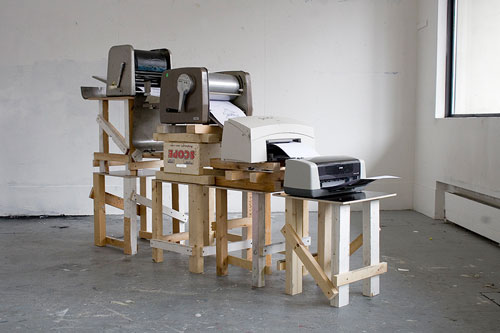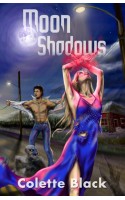One of the funnest elements of a story can be setting. One of the most dangerous questions we can ask ourselves starts with, “Wouldn’t it be cool if…?”
Here’s my story:
In putting together my Mankind’s Redemption series, I placed my characters in far away star systems and then had
to ask myself, “How did they get there?” Time travel? For colonization, not likely. Generation ships? Most likely. Easy-peasy, right? But then, for every cool element I added to their world, to the aliens’ worlds, to every scenario, I had to ask myself the traditional reporter questions of what, when, why, how, and where. It got complicated, fast. The Mwalgi species dwell on a hot, toxic planet that lacks water and what they have is largely contaminated. Cool, right? Even more amazing, it orbits a red dwarf sun with a sister-dwarf-sun in a binary orbit. So their suns orbit
https://www.youtube.com/watch?v=ofD8QjmbNuk
around a central point, swinging each other around. Cool, but complicated, and it added a lot more research. I learned a lesson. Sometimes these amazing, interesting settings are worth it, and sometimes you might want to consider what you’re getting yourself into. Knowing what I know now, would I do it again? Probably. It is cool, but I might have toned everything down just a little bit so I could spend more time writing and a little less time on plausibility and research. Just an FYI, this series is a Galactic Fantasy so I have some wiggle room in the possible but highly unlikely sector. For hard sci-fi, you have to really know your science and accuracy is key.
When I started my next series, Legends of Power, I set it in Kentucky. I went there, took pictures, did research, and restricted most of my “Wouldn’t it be cool if…?” questions to the magic system. I spent almost as much time researching reality as I had in researching scientific possibility. Hmm, not what I expected. Was it worth it? Absolutely, and if you ever get to Bowling Green, KY, I highly recommend Chaney’s Dairy Barn. Best ice cream I’ve ever had! (And some really cute cows.)
In The Number Prophecy, I set the books in a world with similarities to our own but significant differences in history, geology, religion, and sociology. So much fun! I get to explore so many aspects of humanity. Did I research any less? A little less on the physical setting, but so much more on all of the other aspects of my world and it’s people.
The moral of my story? No matter what you do there must be research. Everything is cool, from the craziest settings in your imagination–I’m thinking of a world where metal flyswatters hit you in the face every time you have an idea–to the most mundane, adorable, town in the midwest. Embrace it, enjoy it, and let the setting live as much as your characters. Give it equal, or possibly, even more attention that your protagonist. An interesting setting is the backdrop of interesting characters, interesting plots, and interesting conflicts. Put in the time to make it breathe and never be afraid to ask “Wouldn’t it be cool if…?” Just make sure you’re prepared with a good answer.
https://www.youtube.com/watch?v=NZHj_YZQlUM
 Colette Black lives in the far outskirts of Phoenix, Arizona with her family, 2 dogs, a mischievous cat and the occasional unwanted scorpion. Author of the Mankind’s Redemption Series, The Number Prophecy series, and the new Legends of Power series, Colette writes New Adult and Young Adult sci-fi and fantasy novels with kick-butt characters, lots of action, and always a touch of romance. Find her at www.coletteblack.net
Colette Black lives in the far outskirts of Phoenix, Arizona with her family, 2 dogs, a mischievous cat and the occasional unwanted scorpion. Author of the Mankind’s Redemption Series, The Number Prophecy series, and the new Legends of Power series, Colette writes New Adult and Young Adult sci-fi and fantasy novels with kick-butt characters, lots of action, and always a touch of romance. Find her at www.coletteblack.net

 When it comes to publishing, opinions vary by wide margins. Some say traditional publishing is the only way to get noticed, to come out with a quality book, and to have a chance at a wide readership. Others say traditional publishing is a scam, they use their authors, and only the top sellers get anything out of the relationship. For some, indie publishing is the only way to go. The writer has full autonomy of their work; able to make the covers, formatting, and editing quality the way they think it should be done. Yet, I’ve seen some authors and readers turn their noses up at indie publishing, saying it floods the market with sub-par books and the writers are wannabe hacks who couldn’t cut it in “real” publishing.
When it comes to publishing, opinions vary by wide margins. Some say traditional publishing is the only way to get noticed, to come out with a quality book, and to have a chance at a wide readership. Others say traditional publishing is a scam, they use their authors, and only the top sellers get anything out of the relationship. For some, indie publishing is the only way to go. The writer has full autonomy of their work; able to make the covers, formatting, and editing quality the way they think it should be done. Yet, I’ve seen some authors and readers turn their noses up at indie publishing, saying it floods the market with sub-par books and the writers are wannabe hacks who couldn’t cut it in “real” publishing. When my new publisher,
When my new publisher,  Since the month seems to be focusing on the food aspects of writing, I thought I’d be trendy and go in the organic direction. When I think of organic or whole foods, I think of simple, the way nature intended, unadulterated ingredients. In relation to characterization, I think of characters with a rich and unique background, not created to fit the story, but naturally emerging from their setting, lifestyle, and experiences. Many of my readers tell me that’s my special sauce, that my characters are unique and distinctive from one another. How did that become my strength? I’m not sure, but here are a few ideas.
Since the month seems to be focusing on the food aspects of writing, I thought I’d be trendy and go in the organic direction. When I think of organic or whole foods, I think of simple, the way nature intended, unadulterated ingredients. In relation to characterization, I think of characters with a rich and unique background, not created to fit the story, but naturally emerging from their setting, lifestyle, and experiences. Many of my readers tell me that’s my special sauce, that my characters are unique and distinctive from one another. How did that become my strength? I’m not sure, but here are a few ideas.